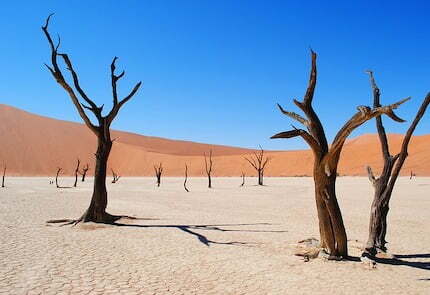At the Africa Climate Summit in Nairobi, African leaders suggested a worldwide tax on carbon. They want big polluting countries to give more help to poorer nations. The leaders plan to use this idea when they talk at the COP28 summit in November. They also want support for a tax on things like fossil fuels, ships, planes, and global money transactions.
Africa is very affected by climate change but only gets about 12% of the money it needs to deal with it. The Nairobi Declaration wants to make sure there is enough money for climate-related projects and to protect the issue of tax increases from political pressures. Right now, about 24 countries have taxes on carbon, but a worldwide tax hasn’t been popular. Still, this declaration is a big step for Africa in dealing with climate change and being a part of worldwide climate talks.
The Africa Climate Summit was about getting money to deal with extreme weather, protect nature, and create renewable energy. The summit got promises of $23 billion for green projects from different governments, banks, private investors, and people who want to do good. But, African leaders say more changes are needed to meet Africa’s money needs. Some people didn’t like the summit because they think it supports fake solutions like carbon credits, which let polluters pay to pollute without really changing anything. Others said the summit didn’t talk enough about how to help Africans deal with extreme weather.
Original news source: Africa proposes global carbon taxes to fight climate change (BBC)
Listen
Slow
Normal
Fast
Group or Classroom Activities
Warm-up Activities:
– Charades
Instructions: Divide the students into two teams. Give each team a set of climate change-related words or phrases written on small pieces of paper. One student from each team will come to the front of the class and act out the word or phrase without speaking while their team tries to guess what it is. The team that guesses correctly gets a point. Continue until all the words or phrases have been acted out, and the team with the most points wins.
– News Summary
Instructions: Have the students read the article individually or in pairs. Then, ask them to write a short summary of the main points of the article in their own words. Afterward, have a class discussion where students share their summaries and compare them. Encourage them to ask questions and clarify any points they didn’t understand.
– Opinion Poll
Instructions: Divide the students into small groups. Give each group a list of statements related to the article, such as “A worldwide tax on carbon is a good idea” or “The Africa Climate Summit was successful.” Ask the students to discuss each statement and indicate whether they agree or disagree with it. They should also provide reasons to support their opinions. Afterward, have each group present their opinions to the class and facilitate a discussion where students can respectfully debate different viewpoints.
– Vocabulary Pictionary
Instructions: Write a list of climate change-related vocabulary words on the board. Divide the students into pairs. One student from each pair will choose a word from the list and draw a picture to represent it, while their partner tries to guess the word. The students can only use gestures and drawings, no words allowed. After a certain amount of time, switch roles. The pair with the most correct guesses wins.
– Future Predictions
Instructions: Divide the students into pairs. Ask them to imagine they are environmental experts and discuss what they think the world will be like in 50 years in terms of climate change. They should consider factors such as temperature, extreme weather events, renewable energy, and global cooperation. Afterward, have each pair present their predictions to the class and facilitate a discussion where students can compare and share their ideas.
Comprehension Questions:
1. What did African leaders suggest at the Africa Climate Summit?
2. Why do African leaders want big polluting countries to give more help to poorer nations?
3. What do African leaders want to put a tax on?
4. How much money does Africa currently get to deal with climate change?
5. What is the purpose of the Nairobi Declaration?
6. How many countries currently have taxes on carbon?
7. What was the Africa Climate Summit about?
Go to answers ⇩
Listen and Fill in the Gaps:
At the (1)______ Climate Summit in Nairobi, African leaders suggested a worldwide tax on carbon. They want big polluting countries to give more help to poorer (2)______. The leaders plan to use this (3)______ when they talk at the COP28 summit in November. They also want support for a tax on things like fossil fuels, ships, planes, and global money transactions.
Africa is very affected by climate change but only (4)______ about 12% of the money it needs to deal with it. The Nairobi Declaration wants to make (5)______ there is enough money for climate-related projects and to protect the issue of tax increases from political (6)______. Right now, about 24 countries have taxes on carbon, but a worldwide tax hasn’t been popular. Still, this declaration is a big step for Africa in (7)______ with climate change and being a part of worldwide climate talks.
The Africa Climate Summit was about getting money to deal with extreme weather, (8)______ nature, and create renewable (9)______. The summit got promises of $23 billion for green projects from different governments, banks, private investors, and people who want to do good. But, African leaders say more changes are needed to meet Africa’s money needs. Some people didn’t (10)______ the summit because they think it supports (11)______ solutions like carbon credits, which let (12)______ pay to pollute without really changing anything. Others said the summit didn’t talk enough about how to help Africans deal with extreme weather.
Go to answers ⇩
Discussion Questions:
Students can ask a partner these questions, or discuss them as a group.
1. What is a worldwide tax on carbon?
2. How would you feel if your country had a tax on things like fossil fuels, ships, planes, and global money transactions?
3. Do you like the idea of big polluting countries giving more help to poorer nations? Why or why not?
4. Do you think it’s fair that Africa only gets about 12% of the money it needs to deal with climate change? Why or why not?
5. What do you think about the idea of having taxes on carbon in different countries?
6. How would you feel if your country had a tax on carbon?
7. What are some ways that money can be used to deal with extreme weather, protect nature, and create renewable energy?
8. Do you think the promises of $23 billion for green projects will be enough to meet Africa’s money needs? Why or why not?
9. What do you think about carbon credits? Do you think they are a fake solution or do you think they can help reduce pollution?
10. How do you think African countries can be better prepared to deal with extreme weather?
11. Do you think the Africa Climate Summit talked enough about how to help Africans deal with extreme weather? Why or why not?
12. What changes do you think are still needed to meet Africa’s money needs for climate-related projects?
Individual Activities
Vocabulary Meanings:
Match each word to its meaning.
Words:
1. tax
2. carbon
3. polluting
4. poorer
5. fossil fuels
6. climate-related
7. renewable energy
8. extreme weather
Meanings:
(a) Not having a lot of money
(b) Things like coal and oil that are bad for the environment
(c) Doing things that harm the environment
(d) A substance that is harmful to the environment
(e) Very bad or unusual weather conditions
(f) Money that people have to pay to the government
(g) Energy that comes from sources that won’t run out
(h) Connected to the climate and its effects
Go to answers ⇩
Multiple Choice Questions:
1. What was discussed at the Africa Climate Summit?
(a) Building more factories
(b) Cutting down trees
(c) Selling more fossil fuels
(d) A worldwide tax on carbon
2. What do African leaders want big polluting countries to do?
(a) Ignore the problem of climate change
(b) Keep polluting the environment
(c) Give more help to poorer nations
(d) Stop using fossil fuels
3. What do African leaders want to tax?
(a) Food and water
(b) Clothes and toys
(c) Books and movies
(d) Fossil fuels, ships, planes, and global money transactions
4. How much money does Africa currently receive to deal with climate change?
(a) About 12% of what it needs
(b) About 50% of what it needs
(c) About 75% of what it needs
(d) About 100% of what it needs
5. How many countries currently have taxes on carbon?
(a) About 10
(b) About 24
(c) About 50
(d) About 100
6. What did the Africa Climate Summit promise for green projects?
(a) $100 billion
(b) $23 billion
(c) $1 million
(d) $10 trillion
7. Why did some people not like the summit?
(a) They think it supports renewable energy
(b) They think it supports cutting down trees
(c) They think it supports fake solutions like carbon credits
(d) They think it supports more pollution
8. What did some people think the summit didn’t talk enough about?
(a) How to help Africans deal with extreme weather
(b) How to build more factories
(c) How to sell more fossil fuels
(d) How to ignore the problem of climate change
Go to answers ⇩
True or False Questions:
1. They also want opposition for a tax on things like fossil fuels, ships, planes, and global money transactions.
2. The leaders plan to abandon this idea when they talk at the COP28 summit in November.
3. Africa only receives about 12% of the money it needs to deal with climate change.
4. They want big polluting countries to give more help to poorer nations.
5. The Africa Climate Summit received promises of $23 billion for green projects, but more stagnation is needed to meet Africa’s money needs.
6. Currently, about 24 countries have taxes on carbon, but a worldwide tax is not unpopular.
7. The Nairobi Declaration aims to ensure there is enough money for climate-related projects and protect tax increases from political pressures.
8. African leaders suggested a worldwide tax on carbon at the Africa Climate Summit in Nairobi.
Go to answers ⇩
Write a Summary:
Write a summary of this news article in two sentences.
Check your writing now with the best free AI for English writing!
Writing Questions:
Answer the following questions. Write as much as you can for each answer.
Check your answers with our free English writing assistant!
1. What did African leaders suggest at the Africa Climate Summit?
2. Why do African leaders want big polluting countries to give more help to poorer nations?
3. How many countries currently have taxes on carbon?
4. What did the Africa Climate Summit get promises of?
5. What are some criticisms of the summit?
Answers
Comprehension Question Answers:
1. What did African leaders suggest at the Africa Climate Summit?
African leaders suggested a worldwide tax on carbon.
2. Why do African leaders want big polluting countries to give more help to poorer nations?
African leaders want big polluting countries to give more help to poorer nations because Africa is very affected by climate change and needs more money to deal with it.
3. What do African leaders want to put a tax on?
African leaders want to put a tax on things like fossil fuels, ships, planes, and global money transactions.
4. How much money does Africa currently get to deal with climate change?
Africa currently gets about 12% of the money it needs to deal with climate change.
5. What is the purpose of the Nairobi Declaration?
The purpose of the Nairobi Declaration is to make sure there is enough money for climate-related projects and to protect the issue of tax increases from political pressures.
6. How many countries currently have taxes on carbon?
About 24 countries currently have taxes on carbon.
7. What was the Africa Climate Summit about?
The Africa Climate Summit was about getting money to deal with extreme weather, protect nature, and create renewable energy.
Go back to questions ⇧
Listen and Fill in the Gaps Answers:
(1) Africa
(2) nations
(3) idea
(4) gets
(5) sure
(6) pressures
(7) dealing
(8) protect
(9) energy
(10) like
(11) fake
(12) polluters
Go back to questions ⇧
Vocabulary Meanings Answers:
1. tax
Answer: (f) Money that people have to pay to the government
2. carbon
Answer: (d) A substance that is harmful to the environment
3. polluting
Answer: (c) Doing things that harm the environment
4. poorer
Answer: (a) Not having a lot of money
5. fossil fuels
Answer: (b) Things like coal and oil that are bad for the environment
6. climate-related
Answer: (h) Connected to the climate and its effects
7. renewable energy
Answer: (g) Energy that comes from sources that won’t run out
8. extreme weather
Answer: (e) Very bad or unusual weather conditions
Go back to questions ⇧
Multiple Choice Answers:
1. What was discussed at the Africa Climate Summit?
Answer: (d) A worldwide tax on carbon
2. What do African leaders want big polluting countries to do?
Answer: (c) Give more help to poorer nations
3. What do African leaders want to tax?
Answer: (d) Fossil fuels, ships, planes, and global money transactions
4. How much money does Africa currently receive to deal with climate change?
Answer: (a) About 12% of what it needs
5. How many countries currently have taxes on carbon?
Answer: (b) About 24
6. What did the Africa Climate Summit promise for green projects?
Answer: (b) $23 billion
7. Why did some people not like the summit?
Answer: (c) They think it supports fake solutions like carbon credits
8. What did some people think the summit didn’t talk enough about?
Answer: (a) How to help Africans deal with extreme weather
Go back to questions ⇧
True or False Answers:
1. They also want opposition for a tax on things like fossil fuels, ships, planes, and global money transactions. (Answer: False)
2. The leaders plan to abandon this idea when they talk at the COP28 summit in November. (Answer: False)
3. Africa only receives about 12% of the money it needs to deal with climate change. (Answer: True)
4. They want big polluting countries to give more help to poorer nations. (Answer: True)
5. The Africa Climate Summit received promises of $23 billion for green projects, but more stagnation is needed to meet Africa’s money needs. (Answer: False)
6. Currently, about 24 countries have taxes on carbon, but a worldwide tax is not unpopular. (Answer: False)
7. The Nairobi Declaration aims to ensure there is enough money for climate-related projects and protect tax increases from political pressures. (Answer: True)
8. African leaders suggested a worldwide tax on carbon at the Africa Climate Summit in Nairobi. (Answer: True)
Go back to questions ⇧















